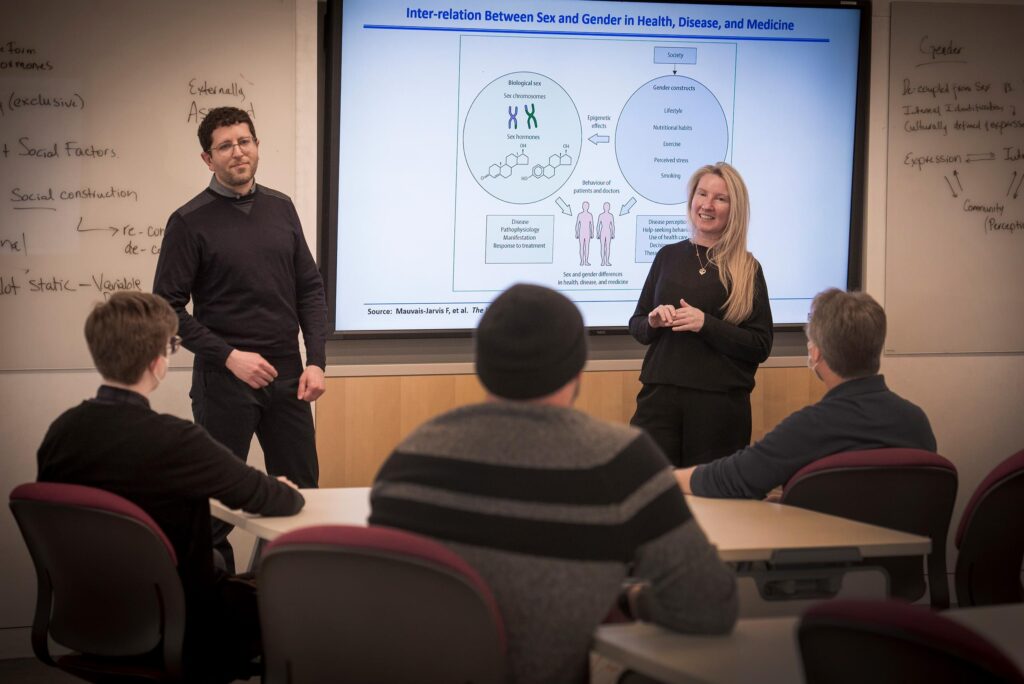

“In students’ first year at HMS [Harvard Medical School], they get 120 hours of learning about the brain and 80 hours of learning about the heart, and very little of it is taught through a sex and gender lens,” says Deb Bartz, MD, MPH, director of education for the Connors Center at the Brigham, where HMS students acquire hands-on learning.
Determined to give students opportunities for in-depth learning about sex- and gender-informed medicine and better prepare them for their careers, Bartz and other Mass General Brigham clinician-scientists launched two new courses at HMS in 2021.
Bartz teamed with JoAnn Manson, MD, MPH, DrPH, of the Brigham and Alex Keuroghlian, MD, MPH, of Massachusetts General Hospital to develop a course on sex- and gender-informed advances in research, population health, policy, and care. With more than 40 expert speakers from several Harvard teaching hospitals, this selective teaches 25 third- and fourth-year students annually to consider sex differences, sexual orientation, gender identity, and sex development in research and to translate their learning to the clinical setting.
The second course is an advanced clinical elective co-directed by Eve Rittenberg, MD, and Kari Braaten, MD, MPH, leading physicians at the Fish Center for Women’s Health. For four weeks, HMS students rotate with a variety of physicians in the clinic and complete capstone projects, ranging from the impact of pregnancy complications on cardiovascular disease to sexuality and menopause.

“This course is groundbreaking because most women’s health clinical electives around the country are focused on reproductive organs and breast and pelvic health,” Rittenberg says. “It’s been wonderful mentoring and teaching these students to see many ways that sex and gender influence health and how they might focus their careers.”
Bartz and Keuroghlian are currently working with HMS to integrate the sex- and gender-informed medicine course content into a greater portion of the full 4-year curriculum to provide a more complete picture on variations in health and disease. Bartz says, “We have to demonstrate why this education is important and advocate for it.”

